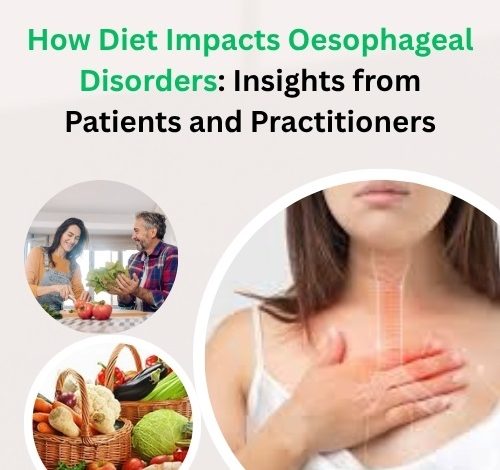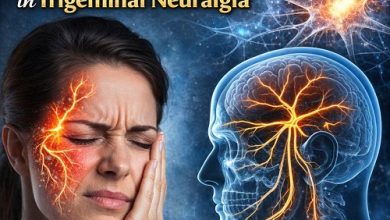How Diet Impacts Oesophageal Disorders: Insights from Patients and Practitioners

Oesophageal disorders affect thousands of people across the UK, often leading to daily discomfort, nutritional challenges, and emotional stress. Many patients living with conditions like gastro-oesophageal reflux disease (GORD), eosinophilic oesophagitis, and achalasia know just how much diet can influence their symptoms. What we eat — and how we eat — plays a significant role in symptom control, treatment outcomes, and quality of life.
The real-world experiences of patients and practitioners, sharing practical insights into how dietary adjustments can ease symptoms, support treatment plans, and offer hope for those living with chronic oesophageal conditions.
Common Oesophageal Disorders and Their Symptoms
Several conditions affect the oesophagus, each with unique causes and dietary implications. Some of the most recognised include:
- Gastro-oesophageal reflux disease (GORD): This occurs when stomach acid frequently flows back into the oesophagus, irritating the lining. Symptoms include heartburn, chest pain, and regurgitation.
- Achalasia: A rare condition where the lower oesophageal sphincter fails to relax, making it hard for food and liquid to pass into the stomach.
- Eosinophilic oesophagitis (EoE): An inflammatory condition triggered by allergens, often food-related. It can lead to difficulty swallowing and a sensation of food being stuck.
- Oesophageal strictures: These are narrowings of the oesophagus often caused by chronic acid reflux or scar tissue, which can impact swallowing.
- Oesophageal cancer: Though less common, it significantly affects dietary intake due to dysphagia and weight loss.
Across all these disorders, diet becomes not only a symptom trigger but also a management tool.
The Role of Diet in Managing Oesophageal Conditions
Food can either worsen or ease symptoms, depending on the disorder and individual tolerance. For many patients, working with healthcare professionals, including dietitians and gastroenterologists, helps pinpoint specific triggers and guide long-term management strategies.
Foods Commonly Avoided
Most patients with oesophageal disorders learn over time to avoid:
- Acidic foods like citrus fruits and tomatoes
- Spicy dishes
- Caffeinated drinks
- Alcohol
- Chocolate
- Carbonated beverages
- Fatty and fried foods
These items can either relax the lower oesophageal sphincter or increase acid production, both of which exacerbate symptoms.
Foods Often Well-Tolerated
On the other hand, foods that are gentle on the oesophagus tend to include:
- Cooked vegetables
- Oats and whole grains (in soft forms)
- Lean proteins
- Non-citrus fruits
- Non-caffeinated herbal teas
- Soft, mashed or puréed foods for those with swallowing issues
Many patients shift to smaller, more frequent meals and sit upright after eating to help food pass through the oesophagus more easily.
Insights from Patients: Achalasia and Natural Management
Achalasia is one of the more challenging oesophageal disorders, not only because of its rarity but due to the difficulties in swallowing both solids and liquids. Those living with achalasia often report a long path to diagnosis and frequent misattribution of symptoms.
Patients typically rely on a combination of dietary control and natural approaches. Soft and semi-liquid diets form the core of symptom relief, as harder textures often result in discomfort or regurgitation. For example, soft porridge, smoothies, yoghurt, and well-cooked vegetables are easier to pass through the oesophagus.
Many individuals also look into supplements to help with achalasia symptoms, especially those that support muscle relaxation, digestion, and reduce inflammation. These may include magnesium, L-carnitine, or herbal formulations — but it’s essential to consult a specialist before starting any supplement.
Some patients also explore alternative medicine for achalasia treatment, which may involve acupuncture, herbal therapies, or stress reduction techniques. While these are not replacements for clinical treatment, they can offer additional support alongside dietary efforts.
Practitioner Perspectives: Clinical Nutrition in Oesophageal Disorders
Healthcare professionals recognise the central role of diet in managing oesophageal conditions. Many hospitals now employ gastroenterology dietitians who specialise in helping patients build tailored meal plans that meet nutritional needs while minimising discomfort.
Key clinical strategies include:
- Elimination diets: Particularly useful for eosinophilic oesophagitis, these identify food triggers through controlled removal and reintroduction of suspected allergens.
- Texture modification: For patients with dysphagia or strictures, blending or mashing food can be critical.
- Nutritional support: In severe cases, temporary reliance on liquid nutrition or feeding tubes may be required to maintain adequate intake.
Practitioners emphasise consistency, hydration, and avoiding large meals — all of which can support better oesophageal function and reduce symptoms.
Practical Tips for Daily Living
Patients living with oesophageal conditions often develop coping strategies that aren’t found in textbooks but make a big difference in day-to-day life. Here are some common adjustments that both patients and practitioners recommend:
- Chew food thoroughly – Take small bites and chew slowly to ease the passage of food.
- Avoid eating late at night – Leave at least 2–3 hours between your last meal and bedtime.
- Elevate the head during sleep – Using pillows or a wedge can reduce reflux symptoms.
- Keep a food diary – Tracking intake and symptoms can help identify patterns and triggers.
- Stay hydrated – Sip water throughout the day, especially before and during meals.
Mental Health and Social Considerations
Eating is not just a physical act — it’s often central to social interactions. For those with oesophageal disorders, this can bring emotional strain. Many patients express frustration or sadness over their inability to enjoy food in social settings.
It’s important to seek support from friends, family, and professionals. Online support groups, counselling, and dietetic services can help patients maintain a sense of normality and enjoy food in new, adapted ways.
Patient Case Stories
Mark, 45, Achalasia Patient
“I used to dread mealtimes. Food would get stuck, and I’d feel exhausted just trying to eat. After working with my doctor and trying natural therapies, I’ve managed to improve things. I stick to soft meals, take digestive supplements, and use breathing techniques to relax before eating. I’m still learning, but things are better now.”
Sarah, 34, Eosinophilic Oesophagitis
“I started getting food stuck in my throat and constant chest discomfort. Through an elimination diet, I found I react strongly to dairy and wheat. Removing those helped dramatically. I still have to be cautious, but I feel in control now.”
The Importance of Professional Support
While many patients find relief through diet, it’s essential to remember that medical advice should always come first. Self-diagnosis or trial-and-error diets can lead to malnutrition or worsening symptoms.
Who can help?
- Gastroenterologists – Provide diagnosis and guide treatment
- Dietitians – Develop safe and effective nutrition plans
- Speech and language therapists – Assist with swallowing issues
- Psychologists – Support emotional wellbeing
Engaging with a care team can ensure you’re not only managing symptoms but also protecting long-term health.
Conclusion
Oesophageal disorders present unique challenges, but diet remains one of the most effective tools in symptom management. By listening to both patient experiences and clinical guidance, we can better understand how the right food choices — combined with professional support — can significantly improve daily life.
Whether living with GORD, achalasia, or another oesophageal condition, small but consistent changes in eating habits can ease symptoms and restore confidence. For those looking beyond conventional treatment, combining dietary control with safe natural therapies, such as alternative medicine for achalasia treatment, may offer additional support — always with professional guidance.
If you’re living with symptoms, don’t struggle in silence. Speak with a healthcare professional and explore the dietary changes that may help you live more comfortably, one bite at a time.




